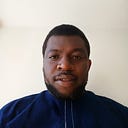You Are Your Stories
I just finished reading this book called Sapiens..a book I would say one of the most important book of my time.
In 400 pages plus, this book paints the history of human civilisation and tries to (from a vantage point) identify causalities at critical junctures that accelerated and established the world as we know it. It brings forward a solid argument about how our ability to tell stories and create imaginary realm birth the human civilisation and has continued to position it above all animals.
Yuval Noah Harari (the writer) starts off talking about the various revolutions that transformed the Sapien species starting off with a discussion on the “cognitive” revolution…the transformation in our sense of self transforming the Sapien. He points out that other types of human existed alongside (Neanderthals, Erectus,Floresiensis for example) arguing that our ability to tell stories and the cognitive revolution we experience assisted our species thrive and dominate. He also pointed out that the basic prototype of who we are today stems from this revolution siting examples like human addiction to sugar resulting from the Sapien’s experience during the forage/hunter gather stage searching in the quest for sugar norishment.
The book end with an outlook of the future of Sapiens arguing that bionic revolution and revolution in nano technology might be the source of the next evolution Sapiens may experience.
Although his book was well expressed and the thoughts clearly articulated, this book wasn’t without its fair share of controversy.
His argument on the agricultural revolution and industrial revolution were interesting. From his perceptive, both revolutions were most likely the “frauds in human history” as they coerced Sapiens into patterns of living that isn’t necessarily concerned with the total well-being of the Sapien…but rather the survival of the system. He presented a brilliant argument of how the plant wheat domesticated Sapiens, forcing him to work harder, restricting his movements (as he tried to care for his plant) thereby exposing him to lifestyle diseases that were rare when Sapiens lived as foragers and hunters. He also discussed extensively the reduction in quality of the human condition arising from the industrial/scientific Revolution that forced humans to restraint innate instincts for the productivity cause.
I had problems with his absolutist views on religion. He with certainty argued the absence of a sovereign being but was not able to provide any explanation on what sparked the big bang and created the condition for life nor how only the human animal was able to develop the ability to tell stories and imagine other worlds.
All in all, the book provided tools for appreciating our current reality and having a general understanding about how we came to be without necessarily understanding the why and who. Despite its morbid undertone (the idea that our realities and values are the product of illusions), I still found solace in that insight: our power to realities from the stories we tell ourselves.
